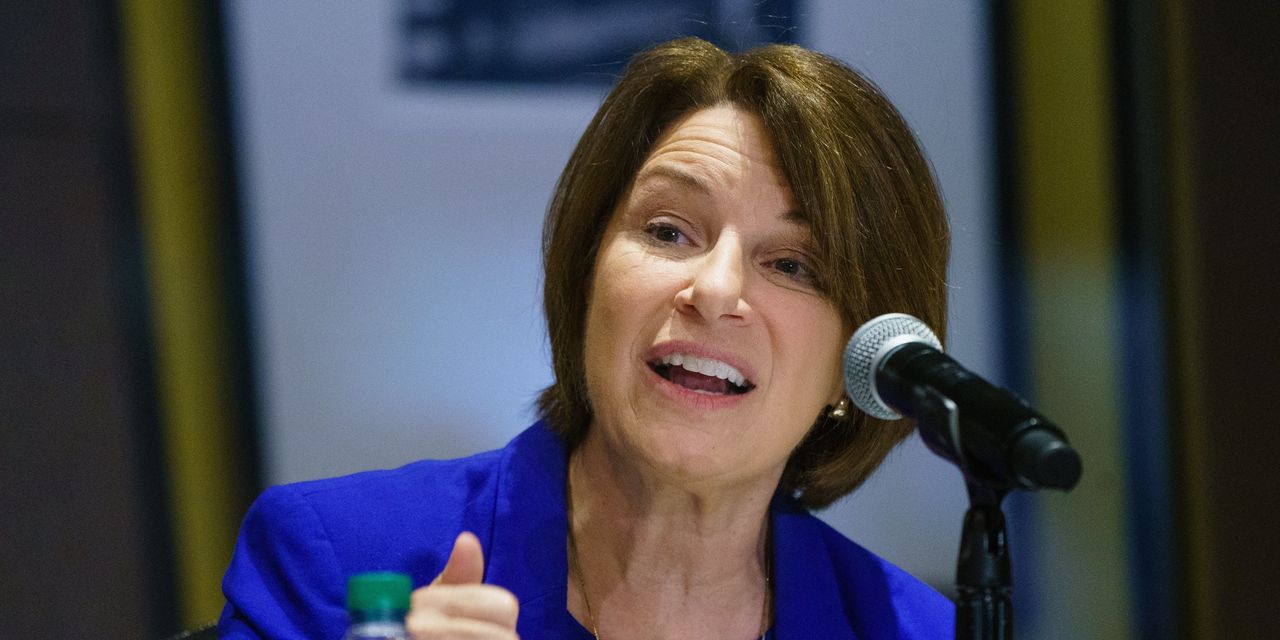WASHINGTON—Sen. Amy Klobuchar (D., Minn.) introduced a bill Thursday that would strip online platforms such as
Facebook Inc.
and
Twitter Inc.
of their liability protections if their technologies spread misinformation related to public-health emergencies, such as the Covid-19 pandemic.
The bill, which Ms. Klobuchar previously telegraphed was in the works, would create an exception to the law known as Section 230, which shields internet platforms from lawsuits for content generated by their users and other third parties.
Should the bill become law—which is far from certain—the Health and Human Services Department would face the task of issuing guidance related to whether the internet posts at issue constitute health misinformation.
If HHS determines that they do, the platforms would be more vulnerable to litigation accusing them of spreading misinformation because they would no longer have the broad protections against liability for user-generated content under Section 230.
A court would still need to adjudicate any liability.
Ms. Klobuchar said she had decided to try to enact new laws because campaigns of persuasion weren’t sufficient.
“Earlier this year, I called on Facebook and Twitter to remove accounts that are responsible for producing the majority of misinformation about the coronavirus, but we need a long-term solution,” she said in a statement. “This legislation will hold online platforms accountable for the spread of health-related misinformation.”
Kevin Martin, the vice president of public policy for Facebook said, “We have long supported common industry standards and section 230 reform. We believe clarification on the difficult and urgent questions about health-related misinformation would be helpful and look forward to working with Congress and the industry as we consider options for reform.”
Twitter declined to comment.
The Chamber of Progress, which describes itself as a center-left tech policy coalition, decried the legislation, saying it could be used to advance political agendas.
“We all want less misinformation online, but this approach would turn future Republican presidents into the speech police,” Chamber of Progress Chief Executive Adam Kovacevich said in a statement. “Democrats would regret this.”
Sen. Ben Ray Lujan
(D., N.M.) is a co-sponsor of the bill, which has no Republican backing.
While lawmakers of both parties take issue with the broad liability protections enjoyed by internet platforms, their concerns are different, complicating the task of building a political consensus on making any changes. Republicans generally say that internet companies squelch conservative perspectives, relying on Section 230 as a shield.
At a congressional hearing last year, Big Tech executives signaled cautious support for modifying Section 230, a provision of the 1996 Communications Decency Act.
President Biden said last week that Facebook and other companies were “killing people” by serving as platforms for misinformation about the Covid-19 vaccine. He later clarified his comments by saying that he wasn’t accusing Facebook of killing people, but that he instead wanted the company to “do something about the misinformation, the outrageous information about the vaccine.”
Facebook has rejected the Biden administration’s criticisms. In a blog post, the company said that 85% of its users in the U.S. have been or want to be vaccinated against Covid-19. Facebook also said it was doing its part to help get more Americans vaccinated, such as by operating pop-up vaccine clinics in low-income and underserved communities in California and other states.
Sen. Klobuchar said the measure was narrowly written to apply only to events that are formally declared public-health emergencies by the HHS secretary. It would apply only when internet platforms use algorithms to spread misinformation widely, according to the legislation. It wouldn’t apply to individual user posts.
The measure arrives during a busy time on Capitol Hill, with the Senate calendar already crowded with nomination votes and efforts to pass broad new infrastructure-spending bills.
It plays at the intersection of two topics that have dominated the political conversation: the rebound in the coronavirus pandemic because of the spread of the Delta variant, and the power of Big Tech, which has rankled both conservatives and liberals.
Write to Siobhan Hughes at siobhan.hughes@wsj.com
Copyright ©2021 Dow Jones & Company, Inc. All Rights Reserved. 87990cbe856818d5eddac44c7b1cdeb8













































